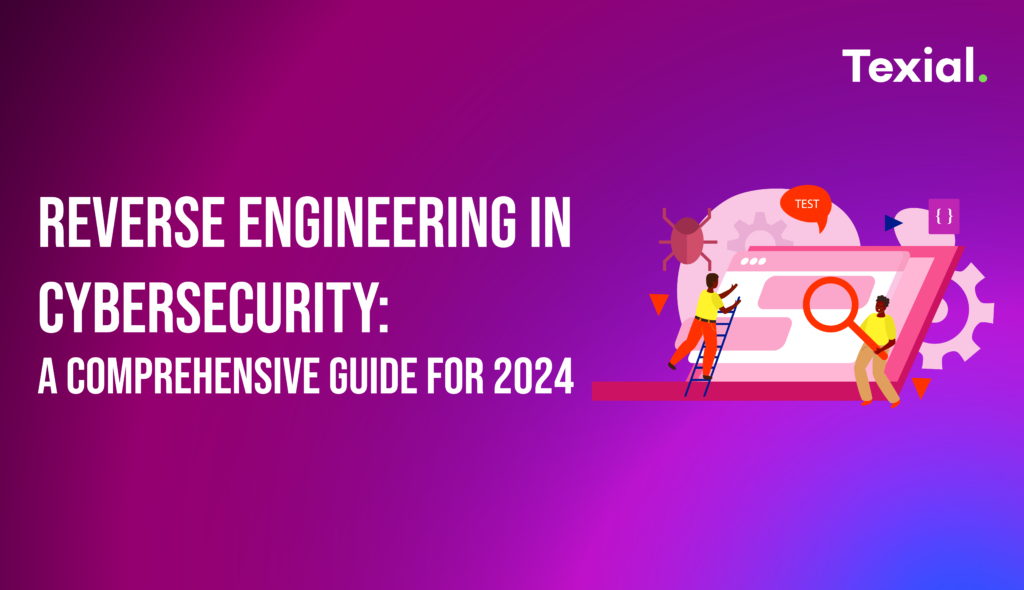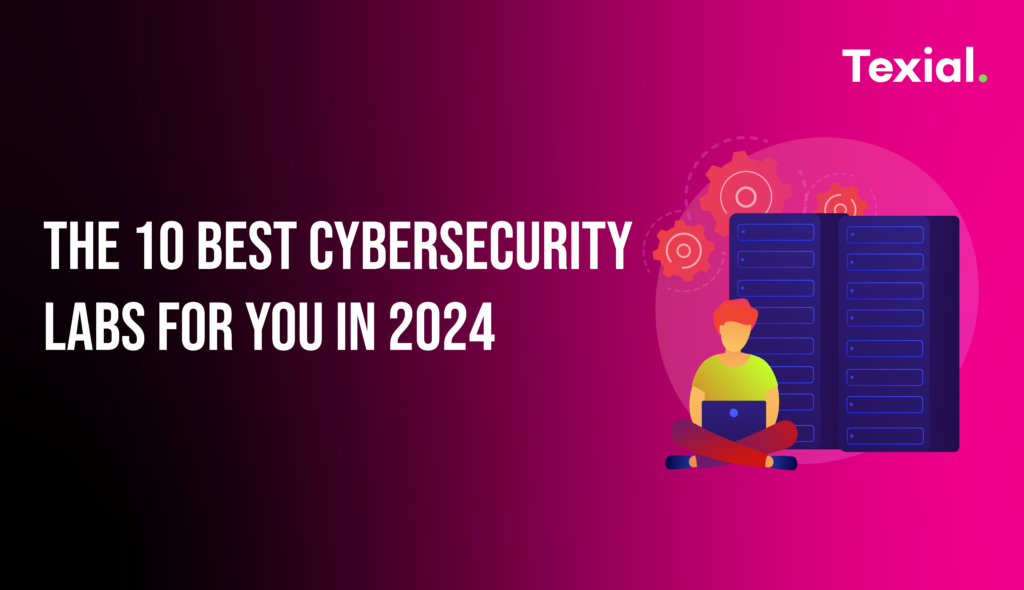Title: A Complete Guide for Starting Your Career in Cybersecurity
Cybersecurity has grown to be a major worry for businesses of all kinds in today’s linked world. The need for qualified experts who can secure networks, preserve digital assets, and protect sensitive data is rising due to the ongoing evolution of cyber threats. Don’t worry if you’re thinking about a career in cybersecurity but don’t know where to start. You will receive practical advice from this in-depth book to help you get started in this fascinating subject.
Recognise the Fundamentals of Cybersecurity:
Understanding the core ideas and concepts is crucial before delving deeper into the field of cybersecurity. Learn the definitions of words like risk management, penetration testing, firewalls, malware, and encryption. Books, basic courses, and online resources are all excellent places to start when establishing your foundational knowledge, and Texial offers these courses.
Determine Your Area of Interest:
Network security, ethical hacking, digital forensics, incident response, and cloud security are just a few of the many specialised areas that make up the broad subject of cybersecurity. Spend some time exploring various topics to determine your areas of interest and strength. This will assist you in focusing more narrowly and adjusting your learning route accordingly.
Obtain the Necessary Certifications and Skills:
Success in the field of cybersecurity depends on developing a solid skill set. Commence by earning highly esteemed industry credentials, such as CompTIA Security+, Certified Information Systems Security Professional (CISSP), Certified Ethical Hacker (CEH), and Offensive Security Certified Professional (OSCP). These credentials strengthen your reputation as a cybersecurity specialist while also attesting to your knowledge.
Acquire Real-World Experience:
While theory is necessary, having real-world experience in cybersecurity is crucial. Seek for possibilities to work part-time employment, volunteer, or obtain practical experience through internships. To improve your abilities and connect with like-minded people, think about taking part in capture-the-flag (CTF) events, making contributions to open-source projects, or joining cybersecurity groups and communities.
Keep up on the Most Recent Technological Advancements:
The field of cybersecurity is dynamic and always changing in response to emerging threats and technological advancements. Participate in online forums and groups, attend webinars and conferences, and read industry blogs to stay up to date on the newest technologies, trends, and practices. Moreover, Texial’s extensive training courses and seminars may assist you in staying on top of trends.
Create a Professional Network:
Building a network is crucial to the success of your cybersecurity job. Make connections with industry experts via LinkedIn, local cybersecurity meetings, and trade associations like ISACA and (ISC)2. Never be afraid to ask mentors or professionals in the field for help and direction. Developing a strong network may lead to beneficial partnerships and career prospects.
Establish a Powerful Internet Presence and Resume:
Create a CV that is specifically suited to you, emphasising your cybersecurity experience, certifications, and related abilities. Think about setting up a personal website or a LinkedIn page to highlight your work, achievements, and areas of expertise. To become recognised as an informed and involved member of the cybersecurity community, take part in online forums, post on cybersecurity blogs, and distribute pertinent material.
Look for Entry-Level Opportunities:
To get started in the cybersecurity field, look for entry-level jobs as a junior penetration tester, security analyst, IT auditor, or cybersecurity consultant. These positions offer opportunity for professional growth and promotion as well as invaluable practical experience. Rejections at first should not depress you; perseverance and hard work are essential to landing your first cybersecurity job.
Continue to Learn and Develop:
Gaining knowledge about cybersecurity takes a lifetime. Remain inquisitive, push yourself to pick up new abilities, and adjust to changing dangers and technology. To increase the depth of your knowledge and breadth of your job options, go for advanced certifications, participate in advanced training courses, and think about going back to school for a cybersecurity degree.
Participate in the Cybersecurity Community:
Share your expertise, perspectives, and experiences with the cybersecurity community in an active manner. Write tutorials or articles, give talks at webinars or conferences, and serve as a mentor for budding professionals. Participating in the community not only improves your reputation and visibility, but it also encourages teamwork and group learning.
Connect with Industry Professionals:
Go to cybersecurity meetings, industry conferences, and networking events to broaden your professional network. Use social media sites like LinkedIn and Twitter to establish connections with recruiters, thought leaders, and cybersecurity experts. In the cybersecurity sector, networking offers chances for cooperation, mentoring, and job progression.
Join the Cybersecurity Community at Texial:
With thorough training courses, practical seminars, and industry-leading certifications, Texial is dedicated to enabling aspiring cybersecurity professionals. Become a part of the active cybersecurity community at Texial to have access to state-of-the-art materials, work with colleagues, and start your path to becoming a cybersecurity specialist.
Give Back to the Community:
As your career in cybersecurity develops, mentor aspiring professionals, lend a hand to cybersecurity projects, and support diversity and inclusion in the industry as a way to give back to the community. To empower the upcoming generation of cybersecurity experts, share your expertise, experiences, and resources as a way of giving back.
It takes commitment, never-ending education, and a love for protecting digital assets to start a career in cybersecurity. You’ll be well-prepared to handle the exciting and challenging world of cybersecurity if you follow to the instructions in this book and make use of the tools offered by Texial. Embark on your adventure now to protect the digital environment!
Here are some frequently asked questions (FAQs) about starting a career in cybersecurity:
Cybersecurity is the defence against illegal access, cyberattacks, and data breaches of digital systems, networks, and data. It's critical for sustaining business continuity, protecting sensitive data, and fostering confidence in digital technology.
Soft skills like communication, problem-solving, and attention to detail are just as important as technical ability in fields like network security, ethical hacking, encryption, and incident response for a job in cybersecurity.
Gaining a solid understanding of cybersecurity through online tutorials, courses, and certifications is necessary for those who have never worked in the field. Furthermore, developing credibility and knowledge may be aided by obtaining real-world experience through internships, practical projects, and involvement in cybersecurity communities.
The CompTIA Security+, Certified Ethical Hacker (CEH), Certified Information Systems Security Professional (CISSP), Offensive Security Certified Professional (OSCP), and Certified Information Security Manager (CISM) are a few of the certifications that are advised for prospective cybersecurity professionals.
Reading trade blogs, attending conferences and webinars, engaging in online forums and communities, and pursuing ongoing professional development through advanced training courses and certifications are all important ways to stay current on the newest developments in cybersecurity.
Opportunities for employment in cybersecurity include positions in the government, financial, healthcare, and technology sectors as security analysts, penetration testers, incident responders, security architects, cybersecurity consultants, and chief information security officers (CISOs).
Using transferable skills like problem-solving, analytical thinking, and attention to detail, obtaining the necessary training and certifications, gaining real-world experience through internships or entry-level jobs, and networking with cybersecurity industry professionals are all part of moving from one field to another in the cybersecurity industry.
To empower prospective cybersecurity experts, Texial offers extensive training programmes, practical seminars, and industry-leading certifications. Through professional advice and resources, Texial assists people in developing their abilities, gaining real-world experience, and advancing their careers in cybersecurity.
Texial’s resources and knowledge are integrated into the FAQs so that readers may learn more about how Texial can help them along their cybersecurity journey.





